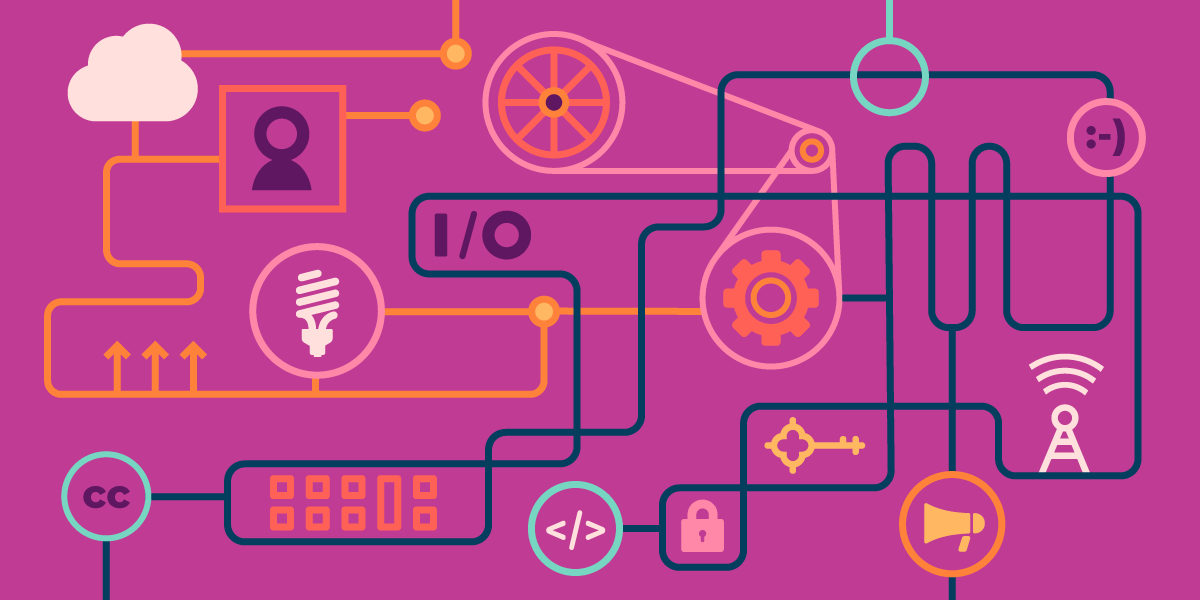
Five Big Tech antitrust bills were introduced in the House Judiciary Committee today; they're the most significant antitrust effort in more than half a century, and they cover a lot of ground.
cicilline.house.gov/press-release/…
1/
cicilline.house.gov/press-release/…
1/

There's a bill to ban "self-preferencing" (when a company-run marketplace pushes its inferior products over its rivals' superior ones); another to block anticompetitive acquisitions; a bill to block "walled garden"; and a bill to fund the FTC to police all this stuff.
2/
2/
But I'm most excited about is the #ACCESSAct, a bill to force interoperability on the biggest tech platforms, the kinds of services people use because they have to, because their friends or communities or customers (or media) are locked into them.
eff.org/deeplinks/2021…
3/
eff.org/deeplinks/2021…
3/
Under the ACCESS Act, very large companies will be required to offer an API that allows users to take their data to a rival service, AND let them continue to talk to the people they left behind when they quit Big Tech.
4/
4/
It's designed to put an end to the Roach Motel business model, where your data checks in, but never checks out.
5/
5/
Now, interop is a GREAT remedy for tech monopolies, but it comes with risks: first, that new platforms could abuse the data users bring with them, and second, that the API itself could be abused to steal data.
6/
6/
The ACCESS Act requires good security practices for the API and the services that connect to it, and it has a "circuit-breaker" cause allowing big platforms to temporarily shut off the API if someone figures out how to exploit it (and penalties for pretextual use of this).
7/
7/
And it has good - but not perfect - language protecting user privacy. The new services that take advantage of these new data flows are bound by rules prohibiting them from exploiting it or making money from it - and the law provides for STONKING fines for rulebreakers.
8/
8/
Sure, "a fine is a price," but this is a steep price: the LARGER of 15% of total global revenue (NOT profit) or 30% of US revenues.
To get a sense of how privacy and interop can help each other check out today's techno-legal analysis from EFF:
eff.org/deeplinks/2021…
9/
To get a sense of how privacy and interop can help each other check out today's techno-legal analysis from EFF:
eff.org/deeplinks/2021…
9/
Despite that, there's an important omission from this bill: a private right of action.
Laws with private rights of action can be enforced by the public - that is, if a company hurts you, you can sue (or join a class action, or seek help from a public interest lawfirm).
10/
Laws with private rights of action can be enforced by the public - that is, if a company hurts you, you can sue (or join a class action, or seek help from a public interest lawfirm).
10/
Without that private right of action, you have to hope that someone at the FTC, or an attorney general, or some other federal law enforcement entity decides to stick up for your rights.
11/
11/
Without a private right of action, the ACCESS Act depends on well-funded, motivated federal agencies.
The problem, of course, is that the GOP doesn't like private rights of action; they see them as "anti-business," and an invitation to "nuisance suits."
12/
The problem, of course, is that the GOP doesn't like private rights of action; they see them as "anti-business," and an invitation to "nuisance suits."
12/
That matters because there's actually a chance that Republicans will support these. After decades of cheerleading for monopolies, the GOP was horrified to discover that the whole digital world is controlled by massive companies with weird, capricious moderation policies.
13/
13/
Once those policies were turned on them - after years of use against Palestinians, trans people, sex workers, BLM activists, Water Protectors, etc - Republicans stopped asserting the absolute right of businesses to set their own policies.
14/
14/
Most of the GOP policy responses to this are, frankly, really stupid, from state laws prohibiting platforms from terminating politicians' accounts to "common carrier" (no deleting porn!) and "fairness doctrine" (every astronomer has to debate an astrologist).
15/
15/
Far better than trying to turn the massive, unweildy monopolists into GOOD monopolists is to END MONOPOLIES, creating a federated online world where users can choose the speech norms they're comfortable with and connect to users on other services.
16/
16/
That's not just a better policy, it's a better REPUBLICAN policy. If you think it's a free speech violation to force a bakery to make a gay wedding cake, how the hell can you think it's OK to force a platform to carry your speech?
17/
17/
Which is to say, there's potential bipartisan support for these bills, and to secure it, the bills' sponsors are willing to set aside a private right of action.
18/
18/
I happen to think it's not a good trade-off, and I plan to campaign for these bills to pass - AFTER they're amended to add a private right of action.
Despite the compromises, these are VERY good bills, the biggest thing to happen to antitrust in generations.
eof/
Despite the compromises, these are VERY good bills, the biggest thing to happen to antitrust in generations.
eof/
ETA - If you'd like an unrolled version of this thread to read or share, here's a link to it on pluralistic.net, my surveillance-free, ad-free, tracker-free blog:
pluralistic.net/2021/06/12/acc…
pluralistic.net/2021/06/12/acc…
• • •
Missing some Tweet in this thread? You can try to
force a refresh










